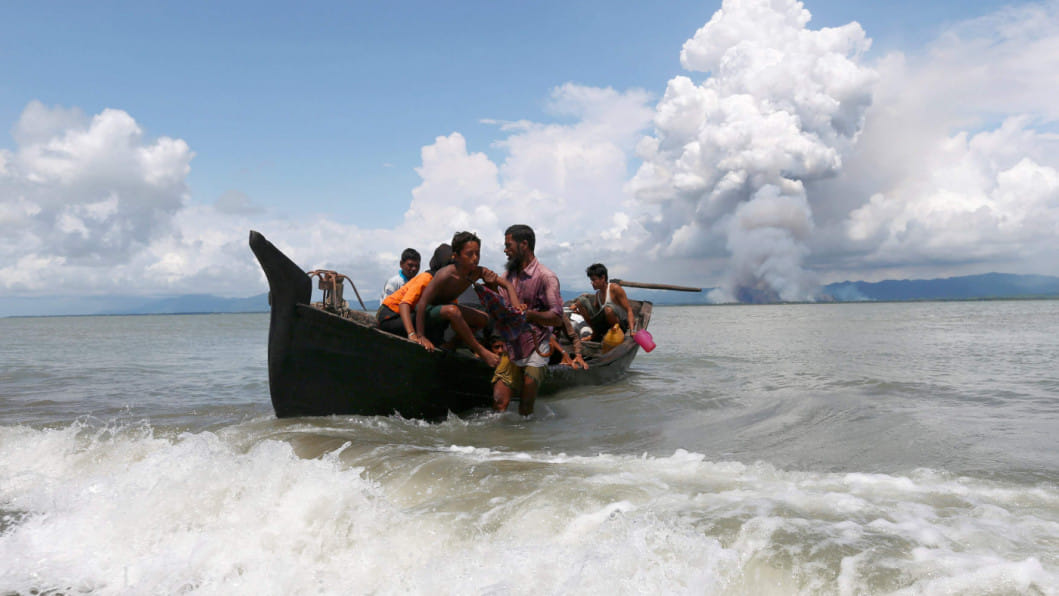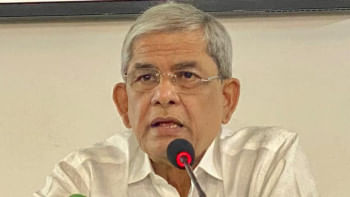ICJ’s order to Myanmar offers hope to the Rohingyas’ future

In an opinion published in Al Jazeera on February 7, Tun Khin, president of Burmese Rohingya Organisation UK, expressed the view that the International Court of Justice's order that Myanmar has to do all it can to prevent genocide offers the persecuted Rohingya minority people hope for the future.
Tun Khin said he fled the Rakhine state in the 90s after being denied access to a university education simply because of his Rohingya identity. Since then, he has watched from afar how the Myanmar authorities persecuted his people with impunity.
The ICJ in The Hague on January 23 imposed the emergency "provisional measures" on Myanmar regarding its actions against and treatment of the Rohingya community in Rakhine state of the country.
The order may sound like incomprehensible legal jargon to any average person, but for many Rohingyas, it was probably one of the best news they ever received, after waiting for long to witness the international community take meaningful action to end their suffering, Tun Khin wrote.
The "World Court" of the United Nations, with this decision, effectively directed the Myanmar government, led by de facto leader Aung San Suu Kyi, to respect the requirements of the 1948 genocide convention and bring an end to its military crackdown on the Rohingyas.
This was the first time that a credible international body said "enough" to the Myanmar government that has abused and oppressed the Rohingyas for so many decades, he wrote.
The Rohingyas' plight captured global attention in August 2017, when the Myanmar military launched a vicious "clearance operation" in the Rakhine State, the then home to over a million Rohingya people. Soldiers went on a rampage through the region, killing thousands, committing mass rapes, burning down entire villages, and driving more than 700,000 people to flee into neighbouring Bangladesh.
The atrocity committed against the Rohingya people was outrageously violent, but that was only the tip of the iceberg, Tu Khin wrote.
Rohingyas have been confined to virtually an open-air prison in the Rakhine state by the Myanmar authorities for decades. They were denied citizenship since 1982 and rendered stateless. Their freedom of movement even within Myanmar has been made extremely limited. They needed to acquire official permissions, and often through paying bribes, to leave their home villages. Amenities such healthcare and education were inaccessible to most Rohingya, and all these were part of a deliberate effort by the government not only to de-humanise the minority community, but also to make their lives miserable enough to be left with the only option of leaving the country.
He, however, stressed that even leaving the country behind was not easy for most, especially those who have next to nothing. Except for those who got pushed into Bangladesh following the atrocities, only a few Rohingyas could leave Rakhine state and manage to build a life for themselves elsewhere.
Terming himself one of those few "lucky" people, Tun Khin said this de-humanising state of the Rohingyas made it vividly clear as to why the ICJ's ruling on the Myanmar government meant so much to them
"I was in the court at The Hague when the verdict was delivered. I had to try really hard not to cry. As I witnessed an official body openly condemn Myanmar for what it did to us, I thought of my friends, family and acquaintances who suffered so much. I thought of the scores of people who shared with me the pain of losing loved ones to the violence of the state," Tun Khin wrote in Al Jazeera.
"That verdict convinced me that my decades of campaigning for the Rohingya finally achieved something."
Hailing the Gambia, a self-described "small country with a big voice on human rights", for bringing the case against Myanmar to the ICJ, Tun Khin said it will take years for the actual case to conclude.
But the imposition of provisional measures by the ICJ, that are binding on Myanmar and create legal obligations that must be enforced, is still a significant victory, he said.
The imposed measures require the government do everything to prevent genocidal acts by security forces, preserve evidence of such acts and report back on its compliance.
It remains to be seen how far Myanmar will listen to the court sincerely. So far, the official reaction has been muted. The Myanmar Foreign Ministry, however, came up with a press release claiming that the court's verdict presented a "distorted picture of the situation", Tun Khin wrote.
He expressed concerns that the Myanmar government will simply deploy its tools of delays, denials, empty promises and endless pleas for "more time", everything that it has long been doing to shrug aside its responsibility for the crimes.
He also expressed frustration that Aung San Suu Kyi, whom Rohingyas have supported for so many years, is now at the forefront of the government's PR efforts.
Yet, there is still some scope to be optimistic, Tun Khin said.
The ICJ's order now requires Myanmar to regularly report to the court on its steps taken to improve the situation, otherwise, the matter will escalate to the UN Security Council. Although China has so far shielded Myanmar from UNSC's action, the ICJ's ruling will likely prompt the global community to do more for the Rohingyas, he wrote.
Referring to the International Criminal Court (ICC)'s announcement last November on conducting a probe into crimes against humanity by Myanmar security forces, and a "universal jurisdiction" case against Myanmar in Argentina launched by his organization, Tun Khin said the wheels of international justice finally began turning, and the Myanmar leadership was feeling the heat.
On January 20, Myanmar, based on its own probe into the situation in Rakhine state in the past few years, admitted for the first time that "war crimes and serious human rights violations" had indeed taken place.
The report, however, was an eyewash to deflect attention from the ICJ order, and it did not address many of the most serious violations, making it clear that Myanmar cannot be trusted with the investigation, and the global community must come forward to deliver justice, Tun Khin said.
"In 2017, as the deadly crackdown by Tatmadaw sent hundreds of thousands fleeing across the border. I spent a month in Bangladesh. During that time, I listened to the stories of countless refugees and witnessed their pain."
"They told me that they want justice for themselves, for the loved ones they lost and the Rohingya community as a whole."
Remembering the time the ICJ's ruling was read at The Hague, Tun Khin said, "I was thinking of those refugees. I was thinking how this decision is going to bring them one step closer to achieving justice."
Ultimately, all that the Rohingya hope for is to be able to return to the place they call their home, and live peacefully without having to fear for their lives, a hope which was rekindled with the ICJ's ruling, he added.





Comments